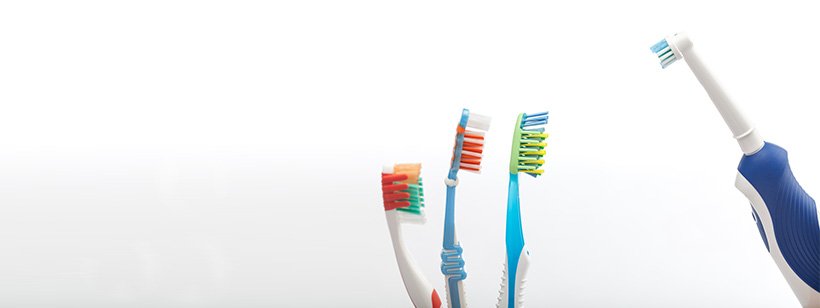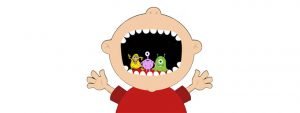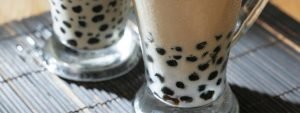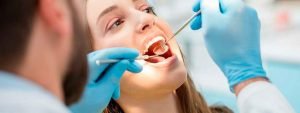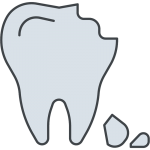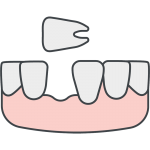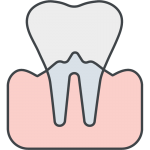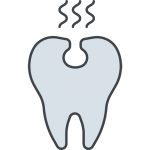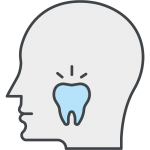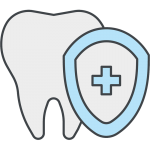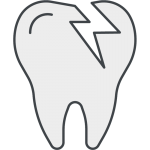Toothbrushing Technique
In this section, I will discuss and recommend some toothbrushing methods to effectively clean your teeth, especially at that junction between the teeth and the gums.
Firstly, angle your toothbrush bristles towards the gums (since this is where plaque accumulates the most). This is called the BASS technique (if you are interested!).
Use a gentle circular scrubbing motion across the teeth (try to use smaller strokes, and not too vigorously). Ideally, a toothbrush with a smaller head reaches further back to the mouth. Because you will be brushing part of the gums, I normally suggest a toothbrush with soft bristles so they don’t traumatise the gums too much as you brush.
Make sure all surfaces of the teeth are reached (paying attention to the the junction of the gums and teeth) including the:
- biting surface,
- cheek side,
- lip side,
- tongue side, and
- palate side
Also, pay special attention to:
- the tongue side of the bottom front teeth, and
- the cheek side of the top back teeth
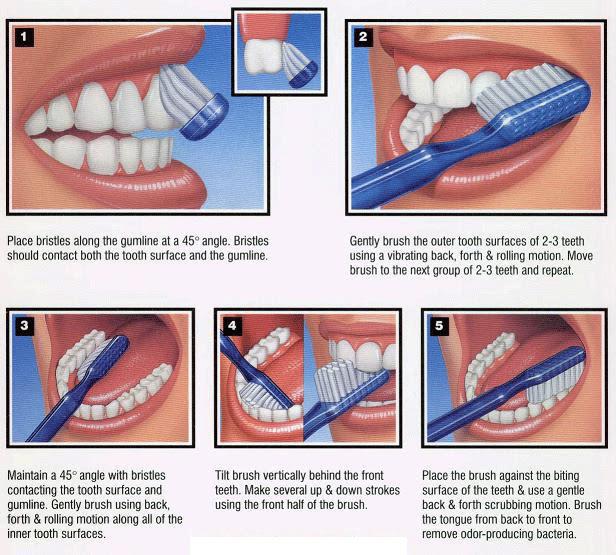
These two areas are where CALCULUS always forms and accumulates. Find out the difference between plaque and calculus HERE.
Manual vs Electric Toothbrush
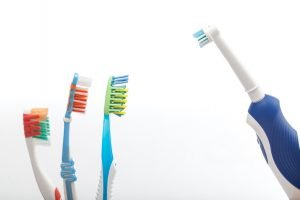 A lot of people have asked me which toothbrush to use, manual or electric?
In my opinion, both the normal manual or electric toothbrushes can achieve the same results and both brush as effectively when used for 2 minutes properly. Saying that, both have their PROS and CONS, and we’ll discuss them below:
A lot of people have asked me which toothbrush to use, manual or electric?
In my opinion, both the normal manual or electric toothbrushes can achieve the same results and both brush as effectively when used for 2 minutes properly. Saying that, both have their PROS and CONS, and we’ll discuss them below:
Manual Toothbrush
This is the classic, standard toothbrush that gets the job done when used well. It is an inexpensive option, can be replaced easily and is great for travelling. The only thing is that it requires a bit or arm and elbow work when using it. (How exhausting…) Just make sure you use soft, circular strokes with it (with the correct technique – as above).Electric Toothbrush
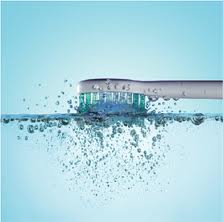 With an electric toothbrush, you will need less brushing work because it moves/vibrates the brush for you. Just angle it correctly, and let it do its job A TOOTH AT A TIME! (No need for the hand scrubbing motion with the electric toothbrush.)
A main advantage with the electric toothbrush is its smaller head, which can get to the smaller nooks and crannies better. Also, these types of brushes can be effective for younger children, and can come in lots of different colours and characters.
However, expect to spend a bit more also for the replacements brush heads, and make sure you remember to charge them regularly.
These days, things have gone further than just the twisting motion of the electric toothbrush, but they’ve gone SONIC! These toothbrushes are super powerful and not only moves the bristles around, but also vibrate the fluid in between the teeth to get to where the bristles don’t reach. But be careful, you will get a really thorough clean, but you might have to clean your mirror too, cos it goes EVERYWHERE!
With an electric toothbrush, you will need less brushing work because it moves/vibrates the brush for you. Just angle it correctly, and let it do its job A TOOTH AT A TIME! (No need for the hand scrubbing motion with the electric toothbrush.)
A main advantage with the electric toothbrush is its smaller head, which can get to the smaller nooks and crannies better. Also, these types of brushes can be effective for younger children, and can come in lots of different colours and characters.
However, expect to spend a bit more also for the replacements brush heads, and make sure you remember to charge them regularly.
These days, things have gone further than just the twisting motion of the electric toothbrush, but they’ve gone SONIC! These toothbrushes are super powerful and not only moves the bristles around, but also vibrate the fluid in between the teeth to get to where the bristles don’t reach. But be careful, you will get a really thorough clean, but you might have to clean your mirror too, cos it goes EVERYWHERE!


